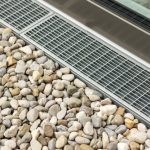Protecting Your Concrete Driveway in the Winter
Frigid temperatures and heavy snowfall take a toll on many aspects of our homes, but this time of year is particularly hard on our concrete driveways. Winter is when most concrete cracks occur, which shorten the surface’s lifespan and lead to expensive repairs.
The good news is that a little bit of preparation can go a long way in preventing concrete disasters.
Keep reading to learn more about winter concrete protection:
- Start winter off right: Set yourself up for success by getting your driveway ready now. Your first step is to clear off any fallen leaves or twigs before the first snowfall. The cleaner your driveway is, the lesser the chance of running into problems in the dead of winter. It’s not a bad idea to hose off your driveway as long as the temperatures aren’t freezing.
- Repair cracks now: Winter isn’t the only season in which cracking occurs; however, these cracks will get worse in the winter as the ground freezes and thaws. Take a second to look for cracks, and make any necessary repairs. You can fix small cracks on your own, but larger ones should be left to the pros.
- Seal your driveway: Your concrete driveway should be sealed every two to five years for extra protection. Depending on how long it’s been, now could be the perfect time to do so. Sealing is another thing you can do yourself, but it’s not a bad idea to bring in a professional for the task.
- Clean up spills: Winter and concrete driveways don’t mix—and neither do spills and concrete! Oil, gas, antifreeze, brake fluid and any other type of spill must be cleaned up right away. While a sealant will provide some protection, letting these stains sit over the winter will cause permanent staining.
- Shovel snow and ice ASAP: Nobody likes shoveling their driveway, but it’s a necessary part of homeownership. Shovel your driveway after each snowfall to prevent heavy accumulation, which is known to cause harm to concrete.
- Be careful while shoveling: If homeowners aren’t careful, they can do more harm than good while shoveling. Use a plastic snow shovel during removal, and be careful not to scrape the surface while you’re scooping up that snow.
- Avoid corrosive materials: Another big mistake homeowners make with winter and concrete driveways is using deicing agents to melt the snow. While those will get rid of snow and ice faster, they eat away at your concrete. Sand and kitty litter are safe alternatives to rock salt and other deicers.
- Consider parking on the street: Because your concrete is more susceptible to damage in the winter, it’s not a bad idea to consider parking your heavy vehicles on the street during the winter months. We know it’s a pain, but this step can go a long way in preventing devastating cracks this season.
Hire our team today
If your concrete driveway is in bad shape or if it’s been a while since you’ve had it sealed, contact our pros at Langenfeld Masonry & Concrete before the first snowfall. We’ll perform all necessary repairs and general maintenance to ensure you have proper winter concrete protection.
More...
Categorised in: Concrete Driveways




